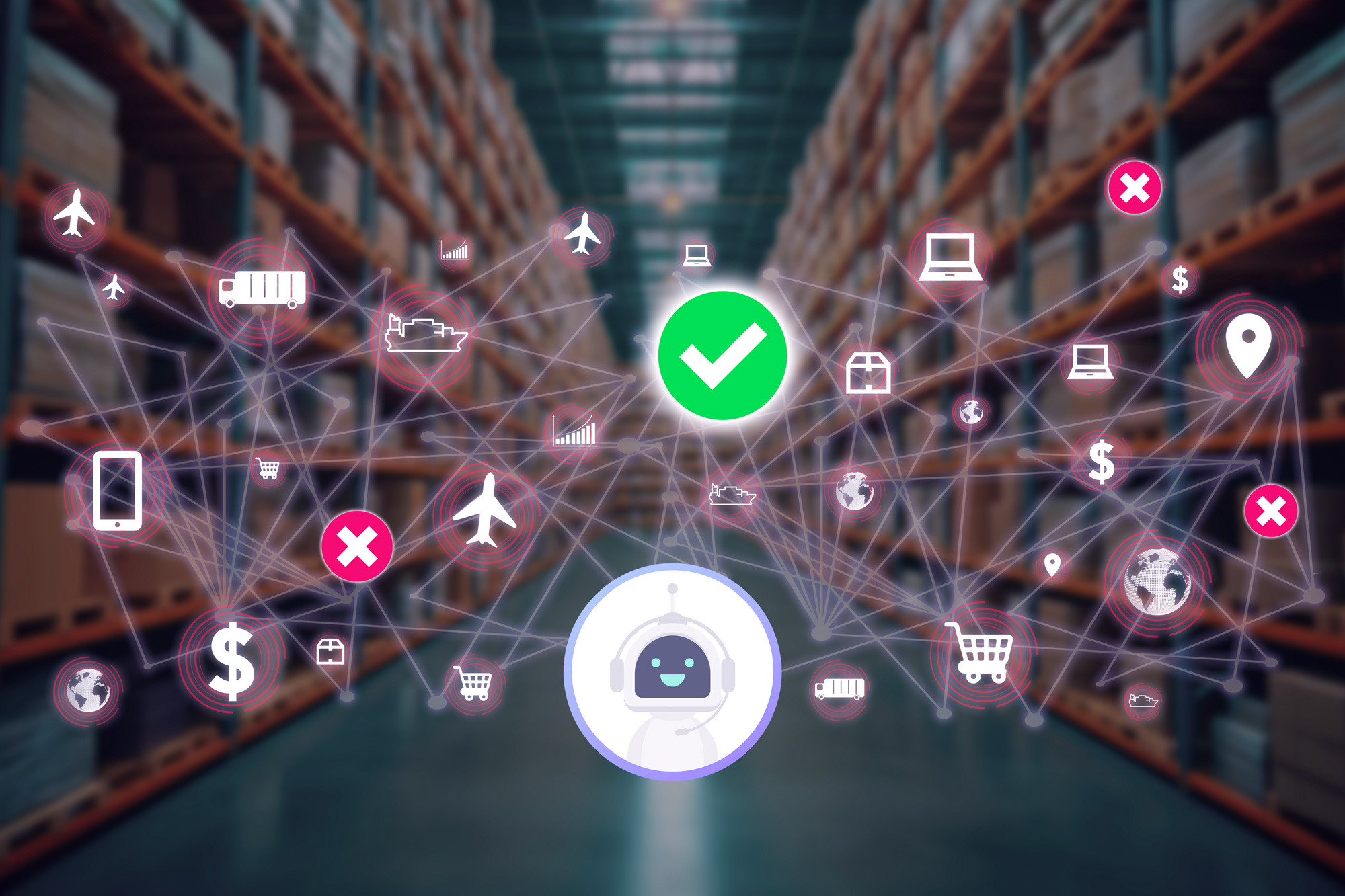
AI agents—unlike chatbots—can execute complex tasks independently by connecting with other systems ...
More and even writing their own code. ChatGPT and other large-language chatbots are great and have revolutionized many aspects of work. However, they have one big drawback: they talk the talk but can't walk the walk.

The next wave of AI disruption will be different. AI agents are here—built on the same large-language model (LLM) technology as generative AI but capable of carrying out complex, multi-step tasks with little human input. They do this by interfacing with other systems— examples we’ve seen include using online shopping and e-commerce sites to make orders and using web design tools to create entire websites.
And if they can't find a tool to complete the task themselves, they can create their own by designing, writing and deploying their own computer code. As you can imagine, this has huge implications for the way we work. Those who fear humans will be replaced by machines say it will put even more jobs at risk.
Those who think it will give us more free time and help solve important problems say it’s a big leap forward. So, let’s take a look at how AI agents are set to affect our day-to-day jobs and maybe our long-term career prospects, too. Processing returns, reviewing invoices and posting updates to field workers are just some of the tasks that Microsoft envisions us delegating to AI agents.
While traditional AI tools can tell us what to do, agents will actually do it for us – identifying the tools and data it needs and connecting with third-party services to get it done. Microsoft is far from alone. Tech giants including OpenAI , Amazon and Google are all bringing platforms to market aimed at integrating agents into working life.
Backing up this plan with billions in investment and huge sales campaigns, they hope we’ll be keen to palm the tedious and mundane elements of our jobs off onto intelligent assistants. This could include things like data entry, reviewing orders and invoices, answering routine support inquiries, or running security procedures. Understanding how to work with data to make decisions based on reality has become increasingly important for many professionals.
AI agents will give them more power to do this than ever before. When we talk about automated decision-making at work, we mean systems that can raise alerts, spot unexpected happenings, or optimize systems automatically. This means that as well as the routine work we talked about earlier, involving following sets of rules, AI can take on “thinking” work, like choosing the best course of action.
Here’s an example. A generative AI can analyze your business and current marketing trends, then create a marketing campaign for you, with all the assets you'll need to market your business, and make decisions about budgeting for SEO, SEM or whatever it thinks you’ll need. An AI agent will be able to go further in executing the campaign by interfacing with advertising services, social media, and email marketing tools.
(In theory, it won't stop there either – it will analyze results, follow up with prospects and adjust its strategy to work better next time.) There is an enormous challenge for organizations here when it comes to instilling trust that augmented decision-making leads to better decisions. This means decisions that are ethically better in terms of their impact on people and society, as well as better for the business.
Whether we are picking and packing in a distribution center, working in the field or behind an office desk, we’ll become increasingly aware of AIs as “entities” -working alongside us, watching what we do and influencing our work. Think this sounds creepy? You’re not alone. In 2024, the CEO of an AI HR software firm canceled plans to give AI agents employee records, performance targets and training goals, just like human staff, after receiving widespread backlash.
While we might not be ready quite yet to think of AIs as fellow beings, make no mistake - virtual employees are coming. Businesses will be hoping that the creepy feeling wears off when workers find out how useful and empowering they can be. The scope here is huge.
Automated agricultural machinery that sows, harvests and manages crops. Technical support assistants learn more about customer problems with every call and develop fixes and solutions autonomously. Or simply managing all of your schedules, inboxes and priorities in a truly intelligent way.
So this is what makes it all worthwhile. With AI agents taking care of everything else, we’re free to concentrate on what really gets us out of bed in the morning. The opportunity to do real, meaningful work that makes a positive change.
For teachers, this might mean less time marking papers and setting assignments, and more face-to-face time with pupils. Customer service agents no longer need to spend time answering routine inquiries and can spend time building deeper connections and understanding client requirements. Managers and executives can prioritize long-term strategic planning, team-building, or pursuing new growth opportunities rather than doing routine administrative work.
In other words, AI agents allow us to spend more time on tasks that create real value, which could lead to richer and more rewarding working lives for everyone. With agents increasingly taking on technical tasks, humans with skills that still can’t be replicated by machines become significantly more valuable. It will still be some time before AI replaces the ability of good human leaders to inspire and motivate teams, resolve conflicts, and deliver real long-term strategy.
Those with highly-tuned emotional intelligence, human insight and authentic creative abilities will be more sought-after than ever, as their aptitudes and skillsets increasingly become a key differentiator. A quick piece of very easy career advice – nurture those talents. For employees during the early days of the agentic AI revolution, this will mean going beyond expecting organizational policies to absolve us of accountability.
One 2024 report found that just 21% of workplaces have AI usage policies in place. While this will inevitably increase, the potential for harm to be caused inadvertently by AI – and agentic AI in particular - is enormous. Writers and artists, for example, claim their work is already being “stolen” and used to train AI, without them being compensated.
And Fashion retailer Mango received damaging negative publicity due to claims an ad campaign featuring AI-generated models had been devised without concern for the potential implications for jobs. This is only scratching the surface of the potential ethical challenges anyone wanting to integrate agentic AI into their workflows will have to face if they want to protect themselves from potentially very expensive and harmful mistakes. Because of the potential benefits we’ve covered here, ignoring the arrival of AI agents simply won’t be an option for professionals who want to be at the top of their game.
Understanding how it will impact your own working life, career path, and the future of your occupation, profession, or industry is the first step to getting prepared. After that, you can start looking for opportunities to use the tools and platforms being made available by US and Chinese AI developers to put it to work. It’s inevitable that AI will lead to job losses, and logic suggests that the more capable AI becomes, the more jobs will be at risk.
Those who want to ensure they benefit from the agentic AI revolution rather than be made redundant by it should be taking action on this today..














